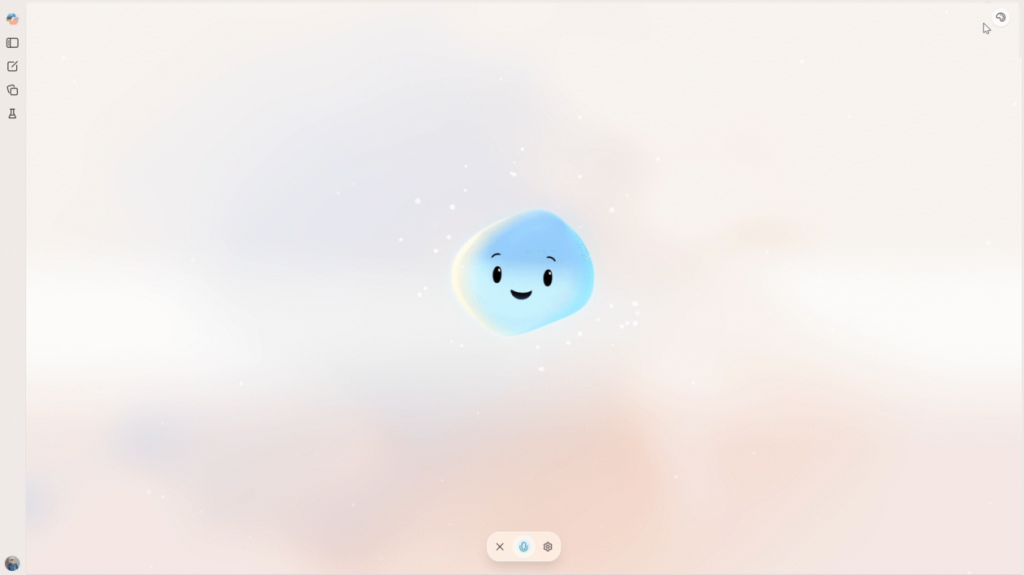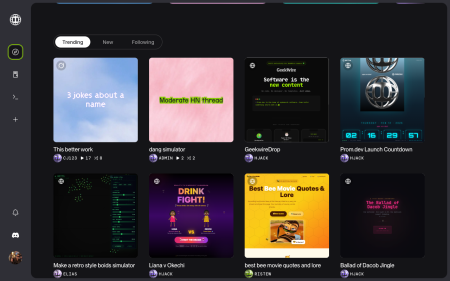Microsoft’s Copilot Evolves: A More Personal, Connected AI Assistant
In the most significant update to Microsoft Copilot since its launch, the tech giant is transforming its AI assistant into a more personalized, capable, and connected digital companion. Led by former Google DeepMind co-founder Mustafa Suleyman, who joined Microsoft last year as its AI CEO, this comprehensive update represents Microsoft’s bold move in the increasingly competitive consumer AI market. “This release is a milestone for what AI can deliver,” explains Suleyman in his announcement blog post. At its core, these changes aim to position Copilot as a comprehensive assistant that meaningfully connects users to their personal information, social circles, and digital tools with the ultimate goal of enhancing daily life. The rollout begins today in the United States, with availability in the UK, Canada, and other global regions coming soon after.
Perhaps the most visually striking addition is “Mico,” an optional visual persona derived from the Microsoft Copilot name. This personification of the AI assistant represents a significant shift in how Microsoft envisions users interacting with Copilot – moving from a faceless utility to a more relatable digital companion. Alongside this visual evolution, Microsoft is introducing shared group chats, allowing multiple users to collaborate with Copilot simultaneously. This social dimension transforms Copilot from a purely individual tool into a collaborative platform. But the most technically impressive addition may be Copilot’s new long-term memory capabilities, enabling the assistant to retain information about user preferences, past interactions, and personal details across conversations – creating a more continuous and personalized experience that builds over time rather than starting fresh with each interaction.
The conversational abilities of Copilot are also receiving significant enhancements through a new “real talk” conversation style. This feature aims to make interactions feel more natural and less robotic, addressing one of the common complaints about AI assistants generally. For students and lifelong learners, the new Learn Live feature transforms Copilot into a voice-enabled Socratic tutor, capable of guiding users through complex topics through thoughtful questioning rather than simply providing answers. This approach encourages deeper understanding and critical thinking, positioning Copilot as an educational tool rather than just an information retrieval system. These conversational improvements demonstrate Microsoft’s focus on making AI interactions more human-centered and valuable beyond simple question-answering.
Connectivity emerges as another major theme in this update, with new connectors linking Copilot to widely used services including Google Drive, Gmail, and Microsoft’s own Outlook. These integrations allow Copilot to access and work with information across a user’s digital ecosystem rather than being limited to Microsoft’s own services. Additionally, deeper integration with Microsoft’s Edge browser enables Copilot to have greater awareness of users’ web activities and provide more contextual assistance. This cross-platform approach acknowledges the reality that most users operate across multiple digital ecosystems rather than staying exclusively within Microsoft’s environment, making Copilot more practically useful in everyday scenarios where information is scattered across various services and platforms.
Microsoft’s aggressive expansion of Copilot’s capabilities comes amid intensifying competition in the consumer AI assistant market. Google continues to develop its Gemini assistant, while Amazon works to modernize Alexa with more advanced AI capabilities. Apple has recently revamped Siri, addressing long-standing limitations, while standalone AI systems like OpenAI’s ChatGPT and Anthropic’s Claude continue to set new benchmarks for conversational AI capabilities. This competitive landscape has pushed Microsoft to accelerate Copilot’s evolution from a basic chatbot into a comprehensive digital assistant with distinctive capabilities and a clear identity. The addition of Mico as a persona, in particular, seems designed to help Copilot develop the kind of brand recognition and emotional connection that Alexa and Siri have cultivated over years in the market.
As artificial intelligence becomes increasingly embedded in daily digital experiences, Microsoft’s vision for Copilot reflects a broader shift in how tech companies are positioning AI assistants – not just as utilities for answering questions or performing simple tasks, but as persistent digital companions that grow with users over time. The emphasis on memory, personalization, natural conversation, and cross-platform connectivity suggests Microsoft sees Copilot’s future as something closer to a digital extension of the user rather than just another app or service. While questions remain about privacy implications, practical utility, and whether users will embrace a more personified AI assistant, this update clearly demonstrates Microsoft’s significant commitment to making Copilot a central element of its consumer technology strategy. As these features roll out globally in the coming months, users will ultimately determine whether this enhanced vision of Copilot delivers on its promise to meaningfully improve their digital lives or becomes just another AI experiment that fails to find lasting relevance.















